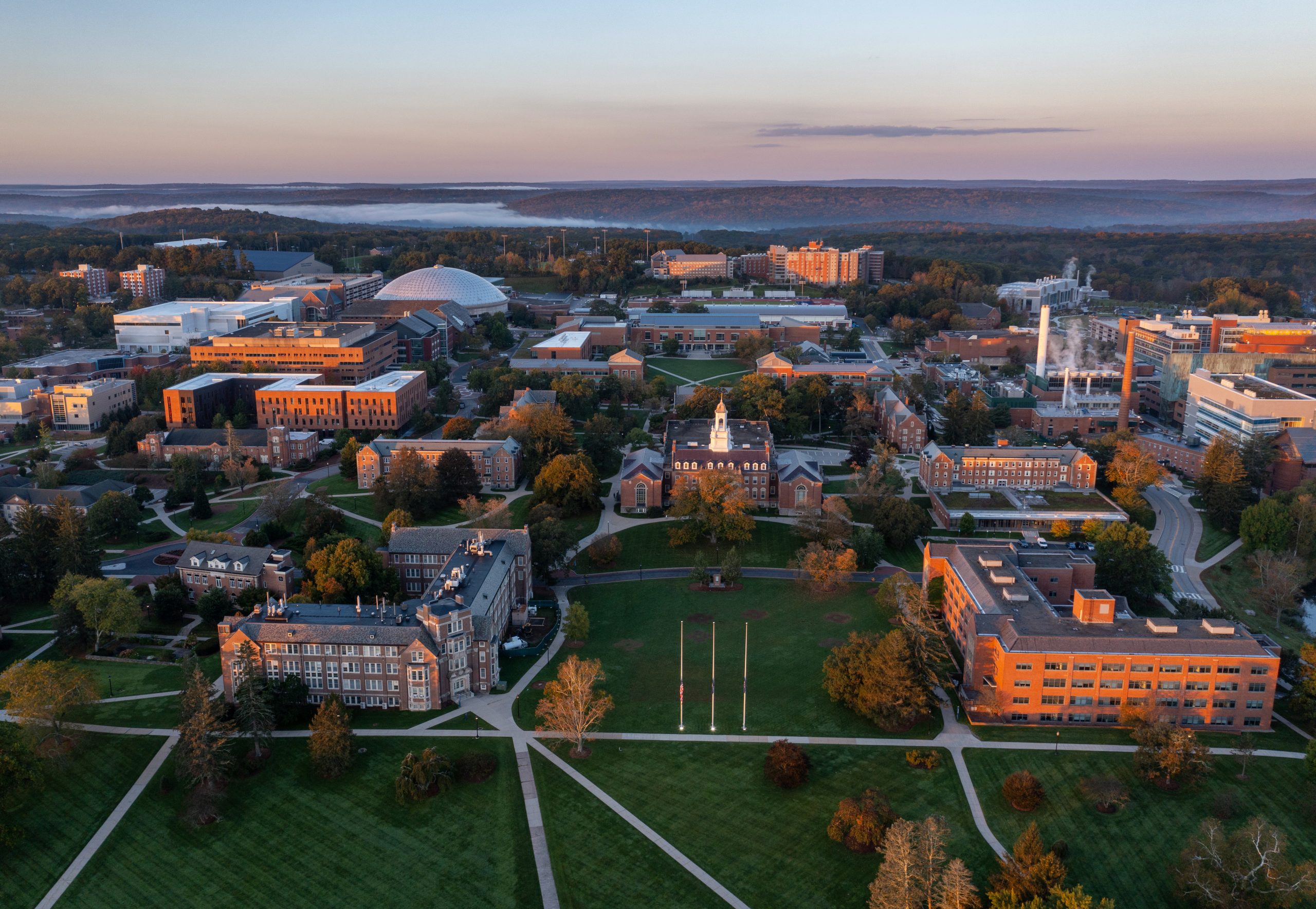The University of Connecticut has approved a new major in Arabic and Islamic civilizations, which will equip students with a working knowledge of the Arabic language, and will allow them to explore classical Islamic civilizations, as well as the literature, culture, heritage, and intellectual life of the modern Arab world.
We want to shatter the binaries of East and West. — Nicola Carpentieri
The program, housed in the Department of Literatures, Cultures, and Languages in the College of Liberal Arts and Sciences, stresses the many different aspects of the Arab world, and the different linguistic, cultural, and religious traditions that shaped it.
Approved by the Board of Trustees in August, the major appeals to students who are studying in many other areas, including the sciences. Some students are native speakers of Arabic or have a Muslim background; others are not sure what it means to be “Arab” or to be “Muslim,” and so come to learn, says program director and assistant professor of literatures, cultures, and languages Nicola Carpentieri.

“Students in our classes come from all majors, but they are curious and motivated students,” Carpentieri says. “They may have seen bad press about the Arab world. But they’re open-minded, and aware that simplistic divisions are fabrications. We want to shatter the binaries of East and West.”
A major misconception is that Arabic civilizations and Islam evolved together, says Carpentieri. But Arabic had an important and sophisticated culture and literary system long before the development of Islam, he says.
Students in the program take courses in both classical Arabic, or the formal version of the language used in education and literature, and other dialects, like Media Arabic and Levantine Arabic. It’s especially useful to learn these types of “street language,” says Carpentieri.
“If you speak classical Arabic on the street in Lebanon, you might get laughed at,” he says. “It’s quite empowering for students to have use and command of both of these forms.”
Unlike most other languages, Arabic gives its speakers access to many different nations and cultures, including Egypt, Lebanon, Morocco, Saudi Arabia, Tunisia, and others. In addition, students in the major will learn about the many influences that Muslim conquests had on the Europe we know today.
In his course titled Al-Andalus: Music, Literature, and Science in Muslim Spain, Carpentieri teaches on the medieval Muslim territory in southern Spain that shaped an important part of Spanish and European literature, music, philosophy, medicine, art, and architecture.
“Nico is easily my favorite professor,” says Stephen Jepsen ’20 (CLAS), a student in Carpentieri’s the Al-Andalus course, and a molecular and cell biology major who will declare the Arabic and Islamic civilizations major later this year. “He can just put up a map of the Middle East and lead a discussion for an hour and a half.”
Jepsen’s interest in Arabic began in high school at the Bridgeport Regional Aquaculture Science and Technology Center, where he became friends with a fellow student who came from Egypt. His friend taught him to read and write a little Arabic, and he has since loved the language.
“It’s such a beautiful language, like it was meant for poetry,” says Jepsen.
Carpentieri also maintains that a dictionary of Arabic would “take up an entire shelf,” with the language famously including 90 different words for the concept of love. But contrary to perception, he says, it’s not difficult to learn.
“Students become fascinated and engrossed in this language,” he says. “They’re bound to get a lot of satisfaction out of it.”
He adds that UConn is unusual in offering such a robust program in the language.
“The program is unique in the U.S. in that we delve so much into Arabic literature, poetics, and other cultural aspects such as music, science, art, and architecture,” Carpentieri says. “That’s what sets it apart.”
Jepsen plans to study abroad in Muscat, Oman next summer through a dedicated Education Abroad program offered through the Arabic and Islamic civilizations major. He says the courses are a welcome complement to his science classes.
“When you have 12 or 15 students in a class, you can have discussions like you just can’t in larger classes,” he notes. “And by the end of the semester, I’ve got a bunch of new friends.”
Students can begin declaring the Arabic and Islamic civilizations major in May 2019. For more information, visit https://languages.uconn.edu/arabic/, or contact director of Arabic and Islamic civilizations Nicola Carpentieri: nicola.carpentieri@uconn.edu.


